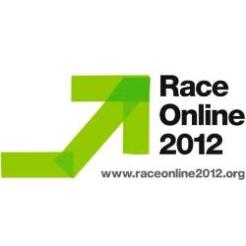Peter Wanless talks about the Big Lottery Fund’s involvement with Race Online 2012 and how charities should be doing more with technology.
There’s been chatter about the dangers of a digital divide for years now. As internet access becomes increasingly critical to essential services, it’s right and proper that the vulnerable are not left behind. But this is not inevitable. Digital technology is already giving voice and connectivity to many isolated, disabled, disadvantaged people in ways that transform their lives. They shouldn’t feel like the lucky ones. Race Online 2012 are right to be championing the need for each and every UK citizen to feel confident and connected to a world wide web.
I find it extraordinary how far behind a digital-by-default world many charities and funders find themselves, given the years in which experts have been developing national strategies and plans to address digital inclusion and companies have been trying to flog us ever more apparently impressive kit. So much of this effort and activity has passed us by.
If the time and effort spent on writing papers, hosting conferences and advertising cheap broadband had been targeted onto connecting up the disconnected and giving us greater confidence in the products and available support, there would be far less urgency about the task facing us today.
No charity should be without the same simple tools others use on a daily basis. Today’s technology will enable many charities to do their vital work better – deliver services faster, fundraise more efficiently, offer support more effectively. Putting technology at the core of projects can help charities to rethink how they better address social problems and deliver services.
Adjustment
All of us must adjust to the availability and opportunity of an online world and the Big Lottery Fund is no exception. We cannot ignore the benefits and efficiencies of online operations to our cost base or to our customers; we have already trialled online applications for four of our funding programmes and in the coming period we will go digital by default.
For us, it is crucial that our applicants and grant holders remain at the heart of our processes. The feedback they give us on this journey will be vitally important; and we will take steps to ensure that all our customers – regardless of size or location – are equally able to benefit from our systems
Moving more of our services online will help us to become more efficient, it will also improve the experience for many applicants and grant holders, freeing transactional resources to add greater value.
Technology will help us link applications from customers under a single account; it will remove the need for charities to resubmit the same information, such as annual accounts time and time again, it will allow them to share their application within their organisation much more easily and finally will let them track their progress online. Ultimately this will make applicants’ interactions with us far more transparent and intelligent.
Those who need funding most
The Big Lottery Fund has a mission to support communities and people most in need. As so many important services and opportunities are now online, it is crucial to our mission that individuals and communities already at greatest disadvantage, don’t find their problems compounded through lack of access or understanding as to what is possible via the internet.
An obvious risk is that areas likely to need our funding the most - for example, urban areas with high levels of deprivation; or rural areas with limited services – may also be those with the least access to online services. Through our regular grant programmes we support countless projects that provide IT training and equipment to those who wouldn’t have access to these resources otherwise.
Taking our commitment to promotion of online technology further, BIG is also looking at ways to ensure that its funding can help charities support and learn from each other through the use of digital platforms. Through our funding we supported initiatives such as:
- The KnowHow NonProfit website that connects civil society organisations so that they can share knowledge, create learning and lead their own development.
- The Knowledge Portal, an online catalogue and library currently being set up by the Third Sector Research Centre in collaboration with the British Library, that will create a permanent collection of published material on and for the voluntary and community sector, making it far easier for researchers and others to locate and access the evidence they need.
- And we have further plans to develop a BIG Online Community - a single platform to support communication and exchanges of knowledge, learning and ideas between our projects.
If we are convinced that the move to online processes will help BIG become more efficient, and improve the experience of our customers then it follows that making better use of IT could be equally valuable to the charities we support. Yet NCVO calls ICT the sector’s biggest skills gap. A third of small and medium charities say they have no one to talk to about technology. There are abundant but extraordinarily underused resources out there:
- Advice: IT4Communities has a bank of 3,000 IT-specialist volunteers.
- Software: the Charity Technology Trust with its software packages has already helped thousands of charities but reckons it could offer support to tens of thousands more
- Kit and connectivity: new schemes from Race Online, Remploy and Microsoft are offering new and refurbished PCs for under £100.
Race Online’s passion and determination to ensure everyone is connected is incredibly timely for us. In the meantime, while there are some great technology-savvy projects, too many charities make poor use of what is available: unwilling, unaware or unable to exploit it to best effect.
Let’s work together to put that right.
Peter Wanless is chief executive of the Big Lottery Fund









